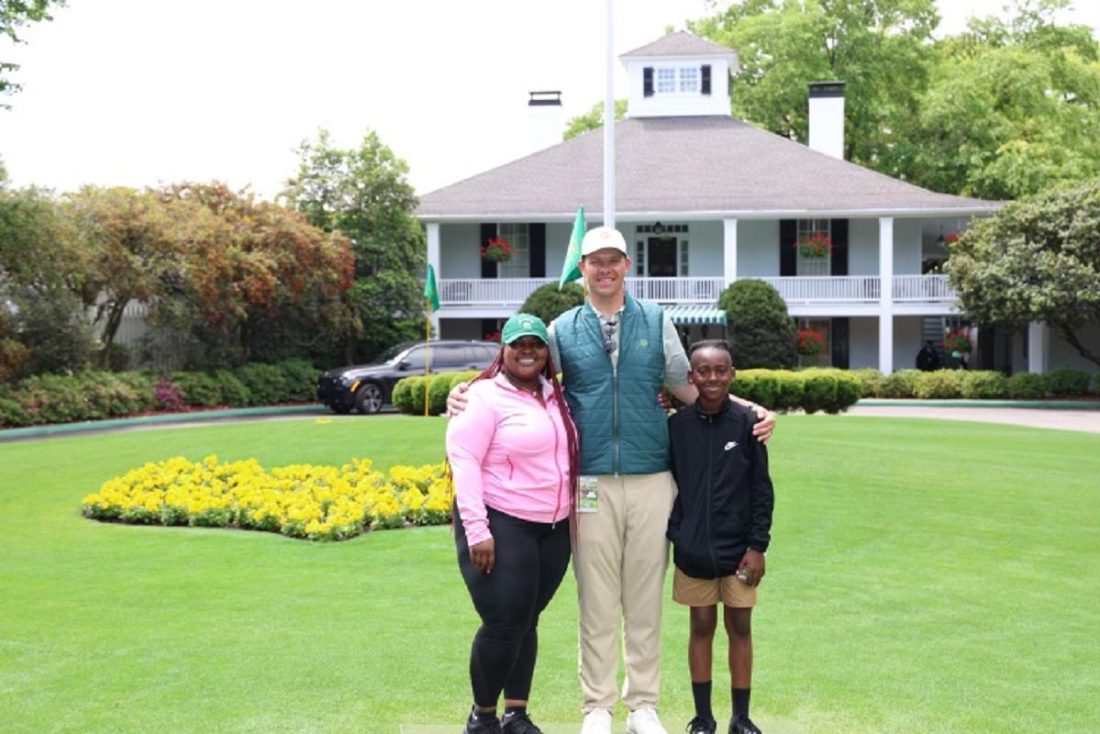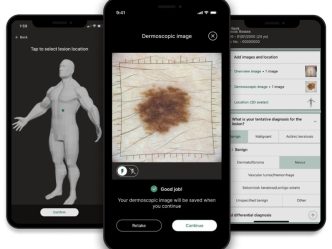Over the last three plus years, Augusta National has been a driving force behind the Hub for Community Innovation, which includes the Dr. Paulette P. Harris Literacy Center at Augusta University.
For many, going to the Masters golf tournament is a once-in-a-lifetime experience. Even for the non-golf fans in Augusta, they know what a huge deal it is.
Through the Masters Community Outreach Program, representatives from the Literacy Center, including many of its students, have had the chance to attend the Masters over the last two years.
The Masters Outreach Program chooses who attends based on record of accomplishment and commitment to progress in the CSRA. In most cases, access is afforded to individuals who would not otherwise have an opportunity to attend.
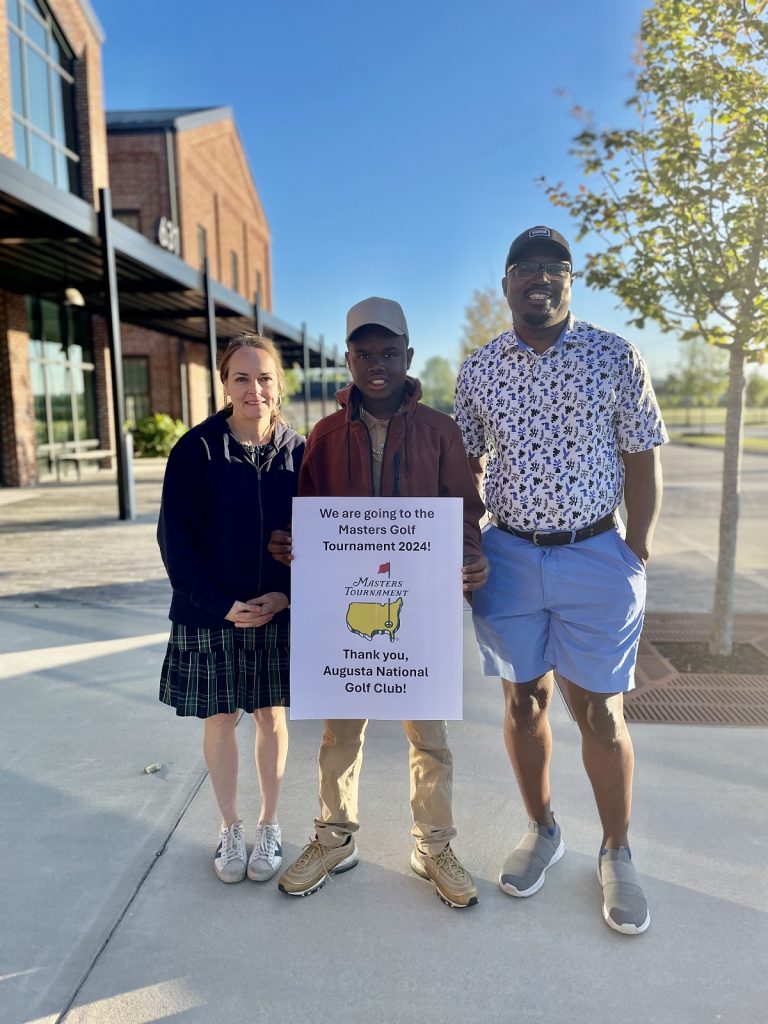
This year, 30 representatives were able to take in a day at the course, including many students.
“One of our goals at the center is to get people in touch with the cultural assets, and this is really a prime example as this is a big thing for the community,” said Betsy VanDeusen, PhD, director of the Literacy Center. “The goal of taking people that might not have the opportunity to go has been great for our center, and they get to say, ‘I’ve been to the Masters.’”
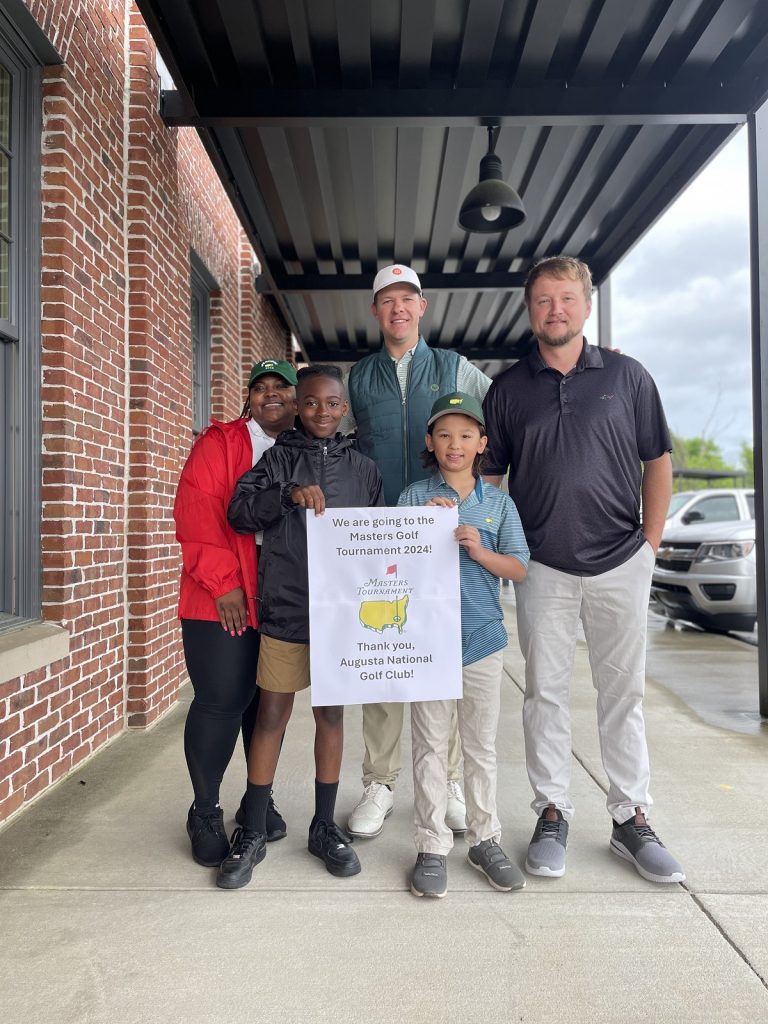
Arian Glasscock is 11 years old and was selected to attend. This was his first time at the Masters and it was an experience he likely won’t forget.
“It was fun. We saw a lot of famous people. I like the golf, too,” said Glasscock, who practices in his backyard.
It was more than fun. Glasscock’s mother, Nadia Glasscock, said it was also an educational experience, as well.
“It was very immersive,” said Nadia. “They gave the juniors a pamphlet, and we had to do activities. So I actually had to learn a little more than what I know and had to get interactive and do a little research with another guide. Then, at the end, they gave the students a Masters coin.”
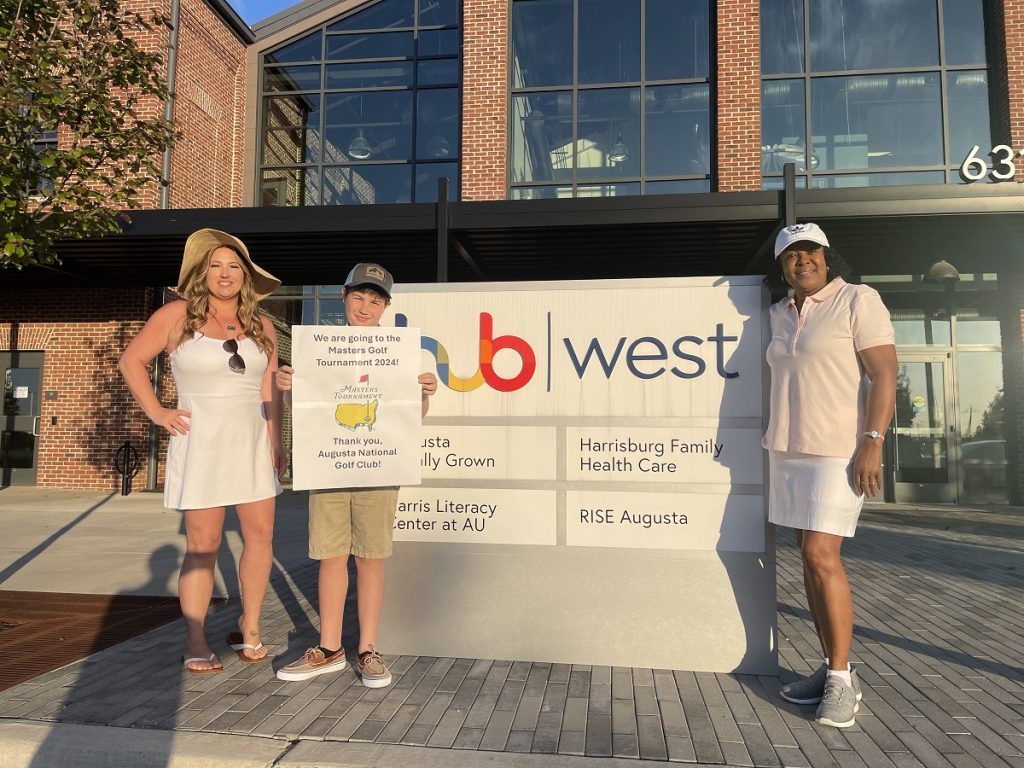
Some of the activities included counting the umbrellas outside the clubhouse to recognizing the different flags that are on display during the Masters.
“It made you have to engage. It made you have to learn and do a little reading,” Nadia added.
“When you go to Augusta National, there’s certain ways to behave, and it’s just good for them to see that in different places, we might do things differently, but they’re capable of doing all of that,” said VanDeusen.
Different groups went over the course of six days. Some were able to attend the finals of the Augusta National Women’s Amateur, which was a treat for another first-time patron, Sally Forner.
“It was whole different world when you entered. A whole different place,” said Forner, a teaching coordinator at the Literacy Center. “It was pretty awesome, and I did not realize that was in the heart of Augusta.”
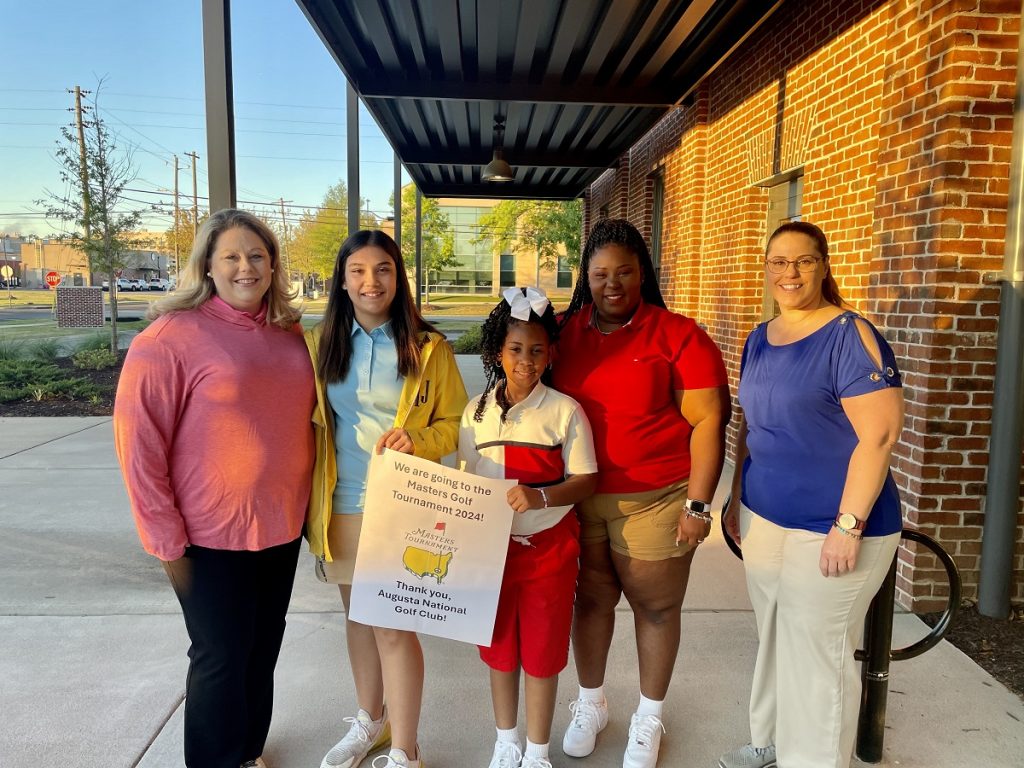
 Augusta University
Augusta University
